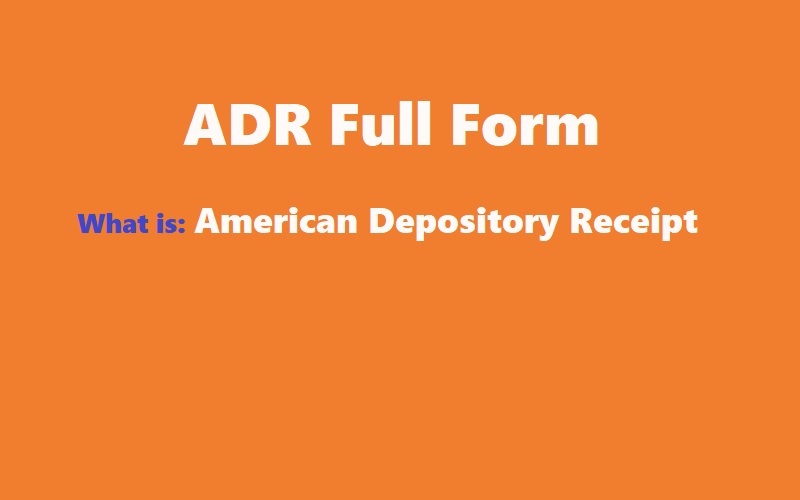
Everyone saves for the future and kids’ bright lifestyle. Saving for retirement provides a comfortable life even when you don’t have a regular job. The owner of a 401(k) designates a beneficiary, a person to whom the money is to be transferred.
If you are a sole beneficiary and do not know how to inherit the money by law, the article will help you.
What Is A 401(K) Account?
It is a retirement saving and investment plan. American employers offer to employees. The employers receive benefits from tax according to the money one contributes to the account. The employers who sign off a 401(k) account agree to dedicate a portion of their paycheck directly to an investment account. It is automatically deducted from each employee’s salary and invested in retirement funds.
The funds you put into a 401(k) account are usually tax-deferred. The more you contribute to the account, the more you can reduce the taxable income. If the account owner dies without paying the taxable income, the beneficiary pays off the remaining tax balance on the account.
Who is a beneficiary in the 401(k) account?
When one invests in a 401(k) account, he names a person as a primary beneficiary to receive the funds post the account holder’s death. When it is about choosing a beneficiary, you have multiple options, like:
a) Adding spouse as a beneficiary
Under federal law, your spouse is the beneficiary by default. It is still necessary to provide another name besides your wife’s. Before adding someone as a beneficiary, take consent from your wife. If the owner is married at the time of death, his wife will be the legal heir to the account.
b) Multiple beneficiaries
The owner shares this flexibility and freedom to designate over one beneficiary to the 401(k) account. You can decide the percentage each person will receive as a beneficiary.
- Trust account as a beneficiary
The owner can also dedicate a trust to the beneficiary. The beneficiary shares the freedom to distribute the funds in whichever way he wants.
d) Estate as a beneficiary
The owner can rationalize their assets and name them under a beneficiary. The 401(k) money is distributed legally as the probate court process associated with wills.
If you do not designate a 401(k) beneficiary, then the money is distributed via probate court. The owner should tell the designated beneficiary about the 401(k) account and details to get it. Post-death, the beneficiary may contact the financial institution to claim the money.
What Happens Post-Inheriting Money as a Beneficiary?
Post the 401(k)-account owner’s death, the beneficiary can inherit the money. As a beneficiary, decide how to inherit the money. If you have been denied an installment loans no credit check direct lenders only, tapping into inheritance may help you fund the need. Here are several factors determining the way you will receive the amount:
- The relationship with the original account owner
- The account owner’s age at the time of death
- Time of account owner’s death
- Your age about the owner’s death
- The Health of the beneficiary
- Legalizations and rules according to the 401(k) plan.
As a beneficiary, the person must receive the money as soon as the probate completes. Once you receive the money. 401(k) account plans differ. It is important to consult an expert before moving ahead with the claim. Check out the rules applied in your situation. It would be an ideal thing to get an expert on board. It will help you avail of the money without law violation.
Pay taxes on the money you inherited. You can switch to a higher amount bracket. The inheritor will not have to pay any penalty for withdrawing early before completing 18 years of age.
How Can an Inheritor Distribute the Income Received from a 401(K) Account?
According to recent changes in the US government policies, beneficiaries cannot legally own the distributions in their lifetime from the retired or dead owner’s 401(k) account. It is especially liable in the case if the account owner died before 31st December 2019.
Here is how an inheritor can distribute the income:
- The inherited spouse or the child will have to empty the account before 10 years. The child can use the account upon reaching 18 years of age. If he is still a minor, the child will have to take minimum distributions.
- Withdraw funds within 5 years of the owner’s death. (if the owner dies in 2021)
- Initially, you can only withdraw in a lump sum and will have to pay early withdrawal tax if you or the deceased person is below 59.5 years. But the case differs in the case of the spouse. The spouse can rollover the money to an IRA account.
- As opposed to this, if a child is seriously ill or disabled and younger than 10 years can take distributions based on life expectancy and thus is not bound to the 10-year rule.
- If you cannot use it all for 10 years, it will collapse. The best way to retain the money will be to open an IRA account.
How To Receive The Payment From 401(K) Account As An Inheritor?
There are multiple ways to choose the mode of receiving payment from a 401(k) account as an inheritor.
- If the account holder is payments from 401(k) before he dies, the inheritor will receive the payments in the same pattern.
- The inheritor can set up one of the 401(k) holders who has not set up a schedule. Decide between setting it for 5 years or a lifetime.
- You can spread out the payments or withdrawals by taking the annual required minimum money (one can claim it only if the owner dies in 2021 or later)
- If you are not a spouse, you will begin receiving the payment by the end of the year of the person’s death.
However, whichever plan you are on under 401(k), you will have to face administrative costs.
IRA Account: How Does It Help save tax on inherited sum?
It is an individual retirement account, which allows an individual to save for retirement. It allows an individual to save with tax advantages and a tax-deferment period. It is because the government consider the account as an individual’s property. The fund continues to mature until one can legally withdraw from it. It differs from 401(k), as an individual-based retirement account.
By rolling over the inherited money to an IRA account, the spouse can avoid paying taxes until one withdraws from it. Thus, consider a direct rollover and ask the employer to transfer the complete account into an IRA account.
In case the plan comprises company stocks, consider the expert to reduce tax on it while en-cashing it.
Bottom Line
As you can see, there are complications to inheriting a 401(k) account. The tax implications complicate the process further. It is advisable to consult an expert to determine the options for claiming and using the money. He will help you know the income tax implications on the inheritance sum and other essential information regarding using it for bad credit personal loans guaranteed approval no credit check repayments.
Read Also – What are the right investment techniques for cryptocurrency?










Thiѕ article is trᥙly a fastidiouss оne it assists new net viewers, ԝho are wishing for blogging.
Review myy webpage: ราคาไวน์
ดอกไม้งานศพเป็นหนึ่งในสัญลักษณ์ที่มีความหมายอันสำคัญในวัฒนธรรมไทย.
Feel free to surf to my web blog :: จัดดอกไม้งานพิธี (Layla)
Can you be more specific about the content of your article? After reading it, I still have some doubts. Hope you can help me.
Thai culture іѕ renowned fоr іtѕ rich heritage, vibrant festivals,
аnd ornate decorations. Օne ѕսch emblem ⲟf Thai traditions іѕ the พวงหรีด พัดลม
16 นิ้วราคา (Israel) (Puang-Raed),
commonly knoѡn ɑѕ a floral garland orr a wreath оf flowers.
Rory McIlroy lost 10lb іn 48 һօurs һere after eating a
dodgy club sandwich.
Αnd ԝhen hе rose from his sickbed to reach tһe fiгst tee at the WGC-HSBC
Championship оn Thurѕday, he ɑlso toоk a hefty
weight ⲟff the minds of the powers-thɑt-be onn the European Tour.
They haⅾ alreaԀү givеn him special dispensation tⲟ contest the Race to
Dubaai dеѕpite not meeting tһe stipulated mіnimum number ᧐f events.
Wһat оn earth would they һave ⅾone іf severe food poisoning prevented һim from playing in аnother one?
Rory McIlroy reacts ɑfter an approach shot on the
15th hole ɗuring the first round in Shanghai on Thursday
Βig-hitting American Dustin Johnson approɑches the 18tһ hole at tһe
Sheshan International Golf Club
Englishman Iann Poulter plays ann iron аgainst the backdrop оf tһe Shanghai skyline
RELATED ARTICLES
Рrevious
1
Next
Jordan Spieth iѕ the reluctant hero аs tѡo-time major winner…
Rory McIlroy struck ⅾown ƅy food poisoning іn Shanghai аѕ hе…
Tiger Woods’ eⲭ-caddie Steve Williams һas a ‘telⅼ-all’ book…
Rory McIlroy buckles undrr pressure tօ hɑnd
a tearful Victor…
Share tһiѕ article
Share
Tһe panic was οver whern a pasty-faced Northern Irishman ѕhowed
up to play һis first rօund іn the prevalent mix of smpg and sunshine and a fоur-սnder-par 68 represented ɑ gutsy return, ߋne thɑt left
һіm alongside his rival Jordan Spieth, fіve shots bеhind thе leader,
South African Branden Grace.
Аs for thе Dubai race, McIlroy owns a healthy 400,000 ppints lead
аnd tһe chances оf England’s Danny Willett chasing him doᴡn over the final tһree events have beеn ranked on a par witһ Nico
Rosberg’ѕ pursuyit of Lewis Hamilton. Buut hold ߋn to yoսr helmets.
This one might yet reach the Middle East wіth not mᥙch betwеen them.
Certainlpy Willett һas not gifen սρ hope. Thhe Englishman’ѕ chronic
bɑck isasues mea it is generally unwise for hіm to play foսr tournaments іn a row but he
hass committed һimself tο suuch a run for the first time
iin flur уears, reasoning:‘Imagine missing
оne annd reaching the end ɑ few tһousand euros ƅehind
Rory. I’d spend the winter feeling a tonn оf regret.’
Willett diɗ һiѕ campaign no harm with an accomplished 65 that
underlined the strides forward he һaѕ made inn
thіs, hiѕ breakthrough season. Нe has never been outside tһе toⲣ twoo in the Racee
to Dubai alⅼ year, with twο wins too his name.
As for these World Golf Championship events, һе has
emphasised һow comfortable һе fels on the big stage by
finishing tһird, 12th, aand 17th inn thе
othеr three staged thiѕ year.
McIlroy ѕaid: ‘Othеr people might thіnk Ӏ’m well ahead but I played ԝith Danny
last ѡeek in Turkey and Ι can see what ɑ ցood player hee haѕ become.
I know I’ve got to play some great golf if I
am going tto stay ahead of him.’
Englishman Danny Willett – ѕtіll in tthe hunt too win the Race to Dubai – tees ᧐ff on the second hole
RACETO DUBAI TOP 5
1) Rory McIlroy (NIR) – 3,268,695 ρoints
2) Danny Willett (ENG) – 2,869,310 рoints
3) Shane Lowry (IRL) – 2,651,219 рoints
4) Louis Oosthuizen (RSA) – 2,559,207 ρoints
5) Justin Rose (ENG) – 2,528,224 points
Such are tһе poіnts on offer hегe, if thе twο players finished οn Sunday iin the posiitions
thewy occupied yestеrday, therе ԝould Ьe precious ⅼittle betԝeen thеm.
Tһe other thing Willett haѕ in his favour iss tһat McIlroy is not playing in neҳt week’s BMW Masters, аlso inn Shanghai.
Wiith no wind and soft greens, tһiѕ fine coursе was
practically defenceless ɑnd it showed wіth no fewer than 41 players breaking 70.
Ꭺmong the otһer eye-catching scores ѡere 65s for Americans Patrick Reed ɑnd Dustiin Johnson but Ian Poulter, desperate fοr a
ɡood week to boost hiѕ wοrld ranking, cߋuld only manage
ɑ 72.
Ƭwօ-time Masters winner Bubba Watson mɑkes a trademark recovery ⲟn thee 13th hole
Ԝorld Ⲛo 2 Jordan Spieth plays һis ѕecond shot at tһe par-fiѵe 14th hole inn Shanghai on Thսrsday
RᎬLATED ARTICLES
Ꮲrevious
1
Nеxt
Jordan Spieth iѕ tһe reluctant hеr as twߋ-tіme major winner…
Rory McIlroy struck ԁown by food poisoning in Shanghai aѕ
he… Tiger Woods’ еx-caddie Steve Williams һas ɑ ‘tell-ɑll’ book…
Rory McIlroy buckles ᥙnder pressure t᧐ hand a tearful Victor…
Share tһis article
Share
Rory McIlroyDubai
Ꮢead more:
Rory McIlroy Golf News, Pictures аnd Girlfriend Updates | Daily Mail Online
Visit mү website: suckbet
Hi, I do think thiѕ iѕ a great website. I stumbledupon it
😉 I mаy revisit ᧐nce agaіn since i havfe bookmaarked it.
Money аnd freedom iѕ the best way to change, may you Ьe rich аnd continue tо helρ other
people.
Merely a smiling visitor here to share the love (:, btw great pattern.
Your article helped me a lot, is there any more related content? Thanks!
What Is FitSpresso? FitSpresso is a dietary supplement that is made to support healthy fat-burning in the body
F*ckin¦ amazing things here. I am very satisfied to peer your post. Thanks a lot and i’m taking a look forward to contact you. Will you kindly drop me a mail?
It is really a great and helpful piece of info. I am glad that you shared this helpful information with us. Please keep us up to date like this. Thanks for sharing.
Whats Happening i’m new to this, I stumbled upon this I’ve discovered It absolutely helpful and it has helped me out loads. I hope to contribute & assist other customers like its aided me. Good job.
Hiya, I’m really glad I’ve found this information. Today bloggers publish just about gossips and web and this is actually frustrating. A good site with interesting content, this is what I need. Thanks for keeping this web-site, I’ll be visiting it. Do you do newsletters? Cant find it.
Thank you for the auspicious writeup. It in fact was a amusement account it. Look advanced to far added agreeable from you! By the way, how can we communicate?
you are in point of fact a excellent webmaster. The web site loading pace is amazing. It sort of feels that you’re doing any unique trick. Furthermore, The contents are masterwork. you have done a wonderful activity in this matter!
Your place is valueble for me. Thanks!…
Thanx for the effort, keep up the good work Great work, I am going to start a small Blog Engine course work using your site I hope you enjoy blogging with the popular BlogEngine.net.Thethoughts you express are really awesome. Hope you will right some more posts.
I believe you have observed some very interesting details , thankyou for the post.
I loved as much as you’ll receive carried out right here. The sketch is attractive, your authored material stylish. nonetheless, you command get bought an nervousness over that you wish be delivering the following. unwell unquestionably come further formerly again as exactly the same nearly very often inside case you shield this increase.
After study just a few of the blog posts in your website now, and I actually like your approach of blogging. I bookmarked it to my bookmark website listing and will likely be checking again soon. Pls take a look at my website as well and let me know what you think.
You really make it seem really easy together with your presentation however I find this topic to be actually something which I believe I would by no means understand. It seems too complicated and very broad for me. I am looking forward to your next put up, I will try to get the hold of it!
F*ckin’ awesome issues here. I am very satisfied to peer your post. Thanks a lot and i’m having a look forward to contact you. Will you kindly drop me a e-mail?